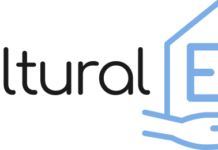Integrated strategies for GHG mitigation in dairy farms
Lead partner institution: Vittorio Tadini Experimental Company (Piacenza)
Program and Call for Proposals: Life + – Call for proposals 2009
Objectives
The GAS-OFF project aims to carry out an integrated assessment of strategies to reduce greenhouse gas emissions on dairy farms, including biogas production and biomass production from crops.
Specifically, the objectives of GAS-OFF are:
– Reducing the production of enteric greenhouse gases
– Identify processes that release CO2, CH4, and N2O emissions in dairy production
– Reduce the level of greenhouse gas emissions from manure
– Promoting the production of energy from biogas
– Optimize the production of biomass from crops
– Promoting the use of organic waste
– Involve pilot demonstration companies
– Raising awareness among farmers and technicians
– Raising awareness among public stakeholders
Actions
By identifying processes that release CO2, CH4, and N2O emissions in dairy production, the GAS-OFF project aims to reduce the emission of greenhouse gases generated by livestock farms and at the same time to promote the production of energy from biogas.
In addition, by optimising the production of biomass from crops and promoting the use of organic residues in pilot demonstration farms, the project raises the awareness of farmers and technicians and initiate a process of raising awareness among public stakeholders.
Networking and communication activities were implemented at both local and European level with the involvement of companies and associations from different EU countries, such as Germany, France, the Netherlands, Poland and non-European countries such as Serbia. At the end of the activities, a final international conference was organized in Piacenza.
Results
The main result of the project are the development of integrated strategies to reduce the environmental impact of dairy farms.
Some of the expected results:
– Reduction of greenhouse gases produced by cows and livestock manure through strategic approaches to food management;
– Identification of the best strategic approach to mitigate greenhouse gas emissions related to the management of biomass crops, digestate and manure;
– Improvement of biogas production;
– Increased awareness of breeders and stakeholders on the project results.
Partnership
The project leader is the Vittorio Tadini Experimental Company. The following are involved as partners: the University of Milan (Faculty of Agriculture and Veterinary); the Catholic University of the Sacred Heart (Institutes of General Agronomy and Herbaceous Cultivation, of Agricultural and Environmental Chemistry); the “Stuard” Experimental Agricultural Company; the Milano-Lodi Provincial Breeders Association; the Vittorio Tadini S.r.l. Agricultural Society.
Duration
The project lasted 39 months (1 October 2010 – 31 December 2013)




